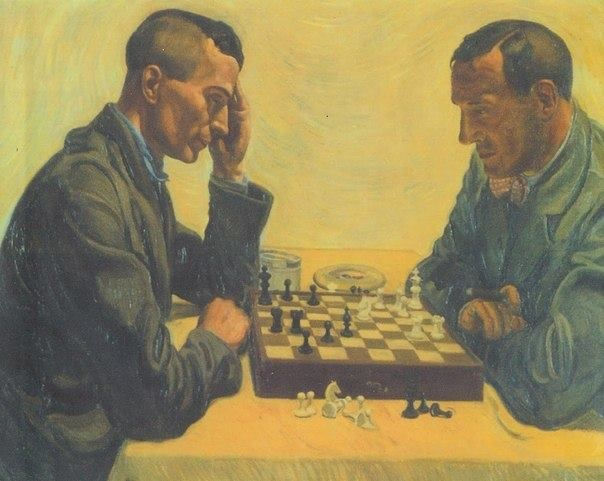Ernst Jünger, "The worker" and the deontological data age.
- Yazmin T. Montana

- Nov 21, 2022
- 4 min read
Updated: Dec 8, 2022
If workers can mobilize the world, as a consequence of will power, it is because the disposition for work embodies, in effect, the fundamental feature of what is revealed as "being" in western thought. This is equivalent to saying that one's work can be identified with being.
The Worker: Dominion and form is a book written by Ernst Jünger in 1932 which articulates a critique of the relationships between freedom and power and between technology and nature.
In an interview with a British newspaper in 1929, Ernst Jünger, German writer and philosopher, defined himself as a "disciple of Nietzsche," emphasizing that he was the first to challenge the fiction of universal and abstract man, dividing said fiction into two distinct and diametrically opposed types: the strong and the weak.
Jünger, on the other hand, was not to be a passive disciple.From his perspective, the collapse of the West is not an inevitability; there are other options to just accepting the reign of the "Caesars."
This is the central theme of his book "The Worker": by exposing the philosophical component of the current process of global technification, he uncovers the core of nihilism. The comprehensive mobilization by which the historical figure of The Worker gains "power" in the world cannot be fully comprehended until viewed through the lens of metaphysics of the desire to power, which defines the idea of "perfection" and, consequently, of "the finished."
The soldier on the other side of the trench is not a manifestation of evil, but rather a plain representation of the moment's difficulty. As a result, Jünger lacks an ultimate Feind: there is just the Gegner before him, conforming fight to "always a matter of saints." Another lesson from his work is that death feeds life and life feeds death: "The most important information that has been taught in the school of battle, Jünger will write, in his most inner closeness, is indestructible."
"The combat front and the labor front are identical," according to "The Worker." The basic concept is that conflict has profound significance. It can only be perceived and not grasped by rational comprehension. Contrary to popular belief, Jünger's positive view of war is not primarily associated with the elevation of "warrior virtues." It stems from a political desire to determine how the sacrifice of deceased troops should not and cannot be judged ineffective.
Work as a definition has always indicated the lowest types of human activity, those most plainly conditioned by the economy, according to Julius Evola. Everything that is not reduced to such forms is not legitimately referred to as "labor." The right term here is "activity," not "work," as in the action of a manager, businessman, ascetic, scholar, artist, diplomat, theologian, someone who makes or breaks a law, someone who follows a principle or embraces an elemental passion, a great company head and a great organizer. In this light, the word Arbeiter (German for laborer) itself becomes a "suspicious indicator," because "this idea belongs fundamentally to the realm of the fourth estate, of the last caste."
A deontological era of data science and AI?
According to the Privacy Rights Clearinghouse, 7,859 data breaches have been made public since 2005, exposing billions of records with personal identifiable information (PII) to potential abuse.” (Zhe Jin, 2018). Shoshana Zuboff’s book ‘The Age of Surveillance Capitalism’ is one of the main sources to openly discuss the misbehavior of companies with regards to private data of users. “Secrecy was required in order to protect operations designed to be undetectable because they took things from users without asking and employed those illegitimately claimed resources to work in the service of others’ purposes.” (Zuboff, 2019). Organizations which work with personal data must do it rightfully based on the GDPR (“This Regulation lays down rules relating to the protection of natural persons with regard to the processing of personal data and rules relating to the free movement of personal data.” (Magdziarczyk, 2019)).Alexander Mitov quoted the definition of William Shaw for utilitarianism in his paper Ethical use of artificial intelligence through the Utilitarianism perspective: “Second, utilitarianism provides an objective and attractive way of resolving conflicts of self-interest. This feature of utilitarianism dramatically contrasts with egoism, which seems incapable of resolving such conflicts… Thus, individuals within organizations make moral decisions and evaluate their actions by appealing to a uniform standard: the general good."
The objective of act utilitarianism is to supply calculations that ought to observe the classes of illegal from required activities, not those of sayings. Within the best conceivable situation, passable activities are implicitly included as a sub-group of required activities. Allowable activities are of auxiliary intrigued in the event that they meet the necessities of maximizing the utilization of “good” that comes about, as do mandatory activities.
One of the concerns around the restrictions is that the similarity between people and ethical machines is utilized as a pardon of machines’ ethical defects and the comparison of imperfectability for the purpose of establishing their independence.
Can the data industry be redeemed?
By turning from a deontological approach to a utilitarian one, where greater good is considered and its fundamental question: Does an action produce net good consequences? is answered before the thought machine is built, there is hope for the industry to turn into a net good for humanity.
"Heroes, believers and lovers don't die. They reappear in each generation, and in this sense the myth triumphs at all times." -Ernst Jünger

A.Paul Weber: Ernst Jünger and Friedrich Georg Jünger playing chess, 1935





Comments